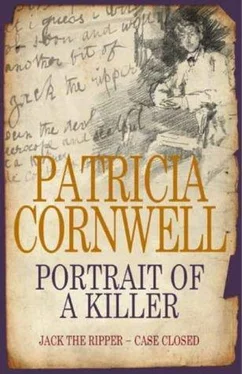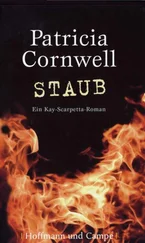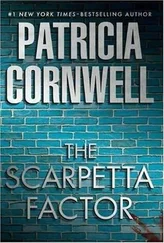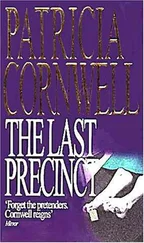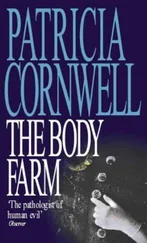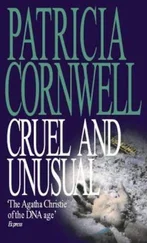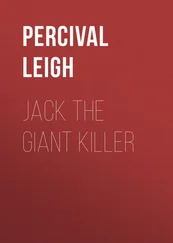Patricia Cornwell - Portrait Of A Killer - Jack The Ripper - Case Closed
Здесь есть возможность читать онлайн «Patricia Cornwell - Portrait Of A Killer - Jack The Ripper - Case Closed» весь текст электронной книги совершенно бесплатно (целиком полную версию без сокращений). В некоторых случаях можно слушать аудио, скачать через торрент в формате fb2 и присутствует краткое содержание. Жанр: Триллер, на английском языке. Описание произведения, (предисловие) а так же отзывы посетителей доступны на портале библиотеки ЛибКат.
- Название:Portrait Of A Killer: Jack The Ripper - Case Closed
- Автор:
- Жанр:
- Год:неизвестен
- ISBN:нет данных
- Рейтинг книги:5 / 5. Голосов: 1
-
Избранное:Добавить в избранное
- Отзывы:
-
Ваша оценка:
- 100
- 1
- 2
- 3
- 4
- 5
Portrait Of A Killer: Jack The Ripper - Case Closed: краткое содержание, описание и аннотация
Предлагаем к чтению аннотацию, описание, краткое содержание или предисловие (зависит от того, что написал сам автор книги «Portrait Of A Killer: Jack The Ripper - Case Closed»). Если вы не нашли необходимую информацию о книге — напишите в комментариях, мы постараемся отыскать её.
Portrait Of A Killer: Jack The Ripper - Case Closed — читать онлайн бесплатно полную книгу (весь текст) целиком
Ниже представлен текст книги, разбитый по страницам. Система сохранения места последней прочитанной страницы, позволяет с удобством читать онлайн бесплатно книгу «Portrait Of A Killer: Jack The Ripper - Case Closed», без необходимости каждый раз заново искать на чём Вы остановились. Поставьте закладку, и сможете в любой момент перейти на страницу, на которой закончили чтение.
Интервал:
Закладка:
Police and physicians were of the opinion that the dismemberment was an attempt to conceal the victim's identity. This conclusion is inconsistent with the killer severing the pelvis at the fourth lumbar and at the hip joints - or essentially removing the victim's sexual organs and genitalia. One might wonder if there is a similarity between such a mutilation and what the Ripper did when he slashed open the abdomen of his victim and took her uterus and part of her vagina.
When the torso was found on the site of Scotland Yard's new headquarters, it was bound in old cloth and "a lot of old string of different sorts tied all around in each direction," said Frederick Wildore, the carpenter who noticed a mysterious shape at six o'clock in the morning on October 2nd, when he reached inside a dark recess of the foundation, looking for his basket of tools. He dragged out the bundle and cut open the string and for a moment did not know what he was looking at. "I thought it was old bacon or something like that," he said at the inquest. The foundation was a labyrinth of recesses and trenches, and to hide the bundle there could not have been done unless the person knew his way, Wildore claimed. It was "always as dark as the darkest night in the day."
Adhering to the remains were bits of newspapers that were fragments from an old Daily Chronicle, and a blood-saturated six-inch-long, four-inch-wide section of the August 24, 1888, edition of the Echo, a daily paper that cost a halfpenny. Sickert was a news addict. A photograph of him in later life shows a studio that is a landfill of newspapers. The Echo was a liberal publication that published numerous articles about Sickert throughout his life. In the August 24, 1888, edition, on page 4 is the "Notes amp;c Queries" section with its instructions that all queries and answers must be written on postcards, and one is to refer to the query he is answering by using the number of that query as assigned by the newspaper. Advertising in disguise, the Echo warns, "is inadmissible."
Of eighteen "Answers" on August 24,1888, five of them were signed "W. S." They are as follows:
Answer One (3580): OSTEND. - I would not advise "W. B." to choose Ostend for a fortnight's holiday; he will be tired of it in two days. It is a show place for dresses, 8tc., and very expensive. The country around is flat and uninteresting; besides, the roads are all paved with granite. To an English tourist I can recommend the "Yellow House" or "Maison Jaune," which is kept by an Englishman, close by the railway station or steamboat pier; also the Hotel du Nord. Both are reasonable, but avoid grand hotels. The sands are lovely. No knowledge of French is required. - W.S.
(Ostend was a seaport and resort in Belgium accessible from Dover, and a place Sickert had visited.)
Answer Two (3686): POPULAR OPERAS. - The popularity of Trovatore is naturally due to the sweetness of the music and the taking airs. It is not generally accepted as a "high class" music - indeed, I have frequently heard "professional" musicians call it not music at all. For myself, I prefer it to any other opera, except Don Juan. - W.S.
Answer Three (3612): PASSPORTS. - I am afraid "An Unfortunate Pole" will have to confine his attention to those countries where no passports are required of which latter there are plenty, and are, besides more pleasant to travel in. I once met a countryman of his who traveled with a borrowed passport; he was caught at it and sent to quod [street slang for prison], where he remained some time. - W.S.
Answer Four (3623): CHANGE OF NAME. - All "Jones" has to do is to take a paint brush, obliterate "Jones" and substitute "Brown." Of course this will not relieve him from any liabilities as "Jones." He will simply be "Jones" trading under the name of "Brown." - W.S.
Answer Five (3627): LETTERS OF NATURALISATION. - In order to obtain these, a foreigner must have resided either five consecutive years, or at least five within the last eight years, in the United Kingdom; and he must also make a declaration that he intends to reside permanently therein. Strict proofs of this will be required from four British-born householders. - W.S.
To offer answers by using the original query number implies the writer was familiar with the Echo and was probably an avid reader of it. To send in five answers is compulsive and in keeping with Sickert's prolific writing and the stunning number of Ripper letters received by the police and press. Newsprint is a leitmotif that shows up repeatedly in Sickert's life and in the Ripper's game playing. A Ripper letter to a police magistrate is written in an exquisite calligraphy on a section of the Star newspaper, dated December 4th. The torn-out section of paper includes the notice of an etching exhibition, and on the back of the paper is a sub-headline "Nobody's Child."
Walter Sickert was never sure who he was or where he was from. He was "No Englishman," to quote the signatory of another Ripper letter. His stage name was "Mr. Nemo" (or Mr. Nobody), and in a telegraph the Ripper sent to the police (no date, but possibly the late fall of 1888) the Ripper crosses out "Mr. Nobody" as the sender and writes in "Jack the Ripper" instead. Sickert wasn't French but considered himself a French painter. He once wrote that he intended to become a French citizen - which he never did. In another letter he states that in his heart he will always be German.
Most Ripper letters mailed October 20, 1888, through November 10th were postmarked London, and it is a certainty Sickert was in London prior to October 22nd to attend an early showing of the "First Pastel Exhibition" that opened at the Grosvenor Gallery. In letters that Sickert wrote to Blanche, references to the New English Art Club's election of new members indicate that Sickert was based in London or at least was in England during the autumn, and most likely into November and possibly until the end of the year.
When Ellen returned home to 54 Broadhurst Gardens at the end of October, she came down with a terrible case of the flu that lingered and sapped her health well into November. I could find no record of her spending time with her husband or whether she knew where he was from one day to the next. I don't know if she was frightened by the violent atrocities happening a mere six miles from her home, but it is hard to imagine she wasn't. The Metropolis was terrorized, but the worst was yet to come.
Mary Kelly was twenty-four years old and very pretty with a fresh complexion, dark hair, and youthful figure. She was better educated than the other Unfortunates who trolled the area where she lived at 26 Dorset Street. The house was rented by John McCarthy, who owned a chandler's shop and let out all the rooms at 26 Dorset to the very poor. Mary's ground-floor room, number 13, was twelve feet square and separated from another room by a partition that was flush against her wooden bedstead. Her door and two large windows opened onto Miller's Court, and some time ago - she wasn't sure when - she had lost her key.
This hadn't caused a huge problem. Not so long ago, she had a bit too much to drink and got into a row with her man, Joseph Barnett, a coal porter. She couldn't remember, but she must have broken a windowpane then. She and Barnett would reach through the jagged hole in the glass to release the spring lock of the door. They never bothered repairing the glass or replacing the key, and probably didn't think either was a wise expenditure of what little money they had.
Mary Kelly and Joseph Barnett's last big row was ten days earlier. They exchanged blows, the cause of the fight being a woman named Maria Harvey. Mary had begun sleeping with her on Monday and Tuesday nights, and Barnett wouldn't put up with it. He moved out, leaving Mary to somehow pay off the?l 9s. owed in rent. Barnett and Mary patched up their relationship a bit, and he dropped by occasionally and gave her a little money.
Читать дальшеИнтервал:
Закладка:
Похожие книги на «Portrait Of A Killer: Jack The Ripper - Case Closed»
Представляем Вашему вниманию похожие книги на «Portrait Of A Killer: Jack The Ripper - Case Closed» списком для выбора. Мы отобрали схожую по названию и смыслу литературу в надежде предоставить читателям больше вариантов отыскать новые, интересные, ещё непрочитанные произведения.
Обсуждение, отзывы о книге «Portrait Of A Killer: Jack The Ripper - Case Closed» и просто собственные мнения читателей. Оставьте ваши комментарии, напишите, что Вы думаете о произведении, его смысле или главных героях. Укажите что конкретно понравилось, а что нет, и почему Вы так считаете.
